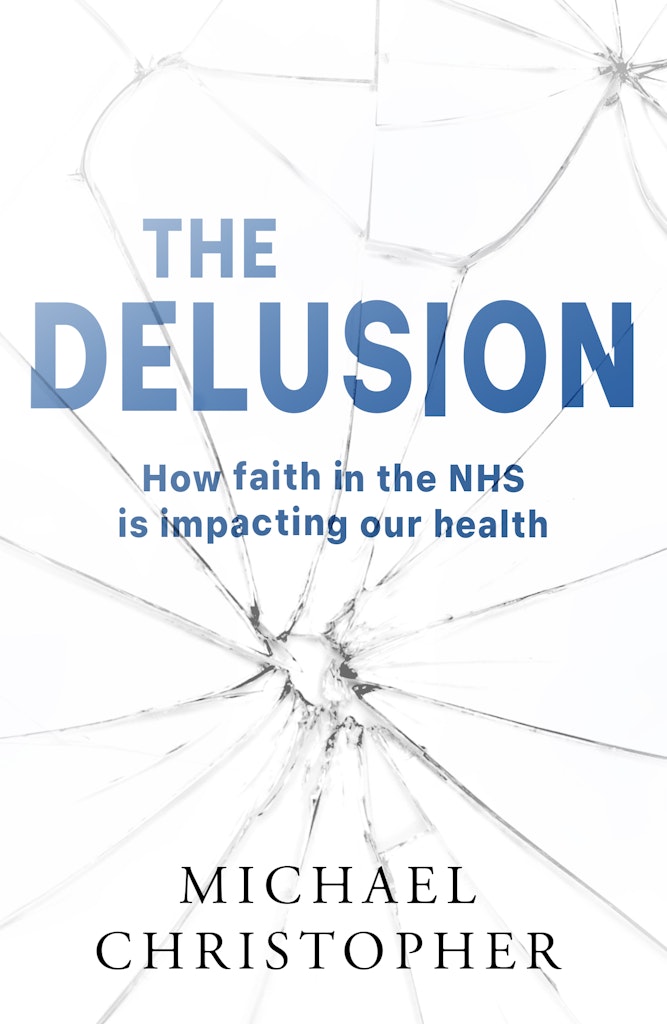The National Health Service was one of the few big winners in the Government’s recent spending review. Indeed, apart from some vague promises on defence, it was probably the only big winner.
The Chancellor allocated an extra £29 billion a year towards the running of the health service, on top of already record budgets.
It is now difficult for the defenders of the NHS to claim that more money is needed, for we currently have one of the most expensive healthcare systems in Europe, but with mediocre outcomes in comparison. We have fewer doctors per head of population than comparable countries; barely a quarter of the number of intensive care beds per capita compared to Germany; fewer MRI scanners per 100,000 people than Slovakia or Hungary, and outcomes on cancer survival, mortality, and morbidity that should shame us all. Yet the public have been conned into believing “our” NHS is the best way to deliver healthcare, the envy of the world, and are so terrified of an alternative that many would rather keep the current system, even if outcomes are worse.
The current health secretary insisted that the NHS should be open to criticism and not treated as a national religion that cannot be reformed. But any hope for a “Nixon in China” approach has dissipated. I have worked as a doctor in the UK, Singapore, and Australia, and the latter two countries have vastly better healthcare services and outcomes than the NHS, all while spending less money.
During visits to both countries when in opposition, the health secretary was exposed to a different approach to healthcare. But he has been swallowed up by the Whitehall NHS blob, stating recently that he had “yet to hear an argument about how another healthcare funding model would be better than the model we already have”. Really?
This delusion affects politicians across the spectrum. At the last election, Nigel Farage floated the idea of a continental-style system paid for by social insurance. Most other parties howled in outrage. Yet as Reform has edged nearer to real power, hints of NHS reform have gone quiet, proving that even politicians who regularly risk courting unpopularity are unwilling to take on this supposed national treasure.
Comparing the NHS with the US ignores the multitude of other healthcare models in between
The NHS was supposed to be a service of last resort; a temporary safety net as envisioned by the Beveridge Report. The taxes it received were to be based on a contributory principle, placing emphasis on the patient to take responsibility for their own health, along with the state, and secure private means when able to do so. That the NHS has become a huge socialist behemoth is down to the radical Marxist politicians who hijacked it, principally Nye Bevan.
To subscribe to the notion that the NHS is the best health system in the world, one must assume the government is uniquely qualified to deliver healthcare. This requires an awful lot of faith in politicians. Yet if the government is neither competent nor benevolent, the argument falls. Rather than healthcare being too important to be left to the individual, communities, or the private sector, the reverse becomes the case. What if healthcare is too important to be left to the government?
Being unresponsive to market forces creates perverse outcomes. Planned, socialist healthcare in the UK snaps the link between supply and demand; how else does one explain the ridiculous number of GPs out of work in a health service that desperately needs them? We are starving in a land of plenty, as squeezed GP practices take on physician associates or paramedics to save money, while newly qualified GPs leave for the private sector or go abroad. The waste is incalculable.
Many on the centre-right warn that any real attempt to reform or replace the NHS will lead to opposition scaremongering and annihilation at the ballot box. There is something to be said for this assertion, such as the recent by-election in Runcorn and Helsby, where imaginary bills for thousands of pounds were pushed through letterboxes, warning that Reform wants to privatise the NHS, meaning high-quality care only for “the rich”. But with a small elitist private sector, this happens anyway. Despite the so-called universal nature of the NHS, we have some of the worst health inequalities in Western Europe.
Why can our politicians not marshal facts to make a decent argument in favour of an alternative? Aren’t our elected representatives supposed to be leaders, after a fashion, not simply followers of public opinion?
It is possible to argue that the free-at-the-point-of-delivery model and “universality” of the NHS make it morally superior, even if delivery is poor. Many want to keep the current system for just this reason, pointing to the US system, with its huge costs and (even) worse inequality of outcomes. But comparing the NHS with its ideological opposite ignores the multitude of other healthcare models in between. There are plenty of excellent, equitable healthcare systems in other countries with far more sustainable funding models. Many systems in Western Europe are free at the point of delivery and have large not-for-profit health funds. Can’t we copy some of these?
We need a return to Beveridge, as the welfare state and health service were originally envisioned. Tax relief on private insurance should be reintroduced and a proper market created within an enlarged private sector to drive costs down. The NHS should concentrate on doing what it was set up to facilitate: public health, prevention, vaccinations, and care at times of critical and serious illness.
Politicians bribing voters with their own money by pumping taxpayers’ cash into the NHS, while appealing to our sense of patriotism via scaremongering nonsense and sentimental piffle, damns us to second-rate healthcare in perpetuity.
Nye Bevan’s statue stands proud in Cardiff city centre as the founder of the NHS. Yet, his real legacy is the scandal of elderly patients dying on trolleys, patients waiting months or years for a hip replacement, or dying of cancer due to wait lists for treatment that would be unacceptable in any other part of the developed world. Si monumentum requiris, circumspice — “if you seek his monument, look around you”.
For a deeper examination of how blind faith in the NHS is damaging both healthcare outcomes and public debate, my book The Delusion: How Faith in the NHS is Impacting Our Health, offers a candid, meticulously argued critique. Published 24th June, The Delusion is available to order from all major retailers.










